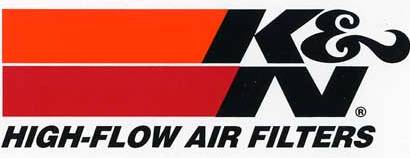The Ninth Circuit yesterday addressed the question: “whether an award of statutory damages for trademark counterfeiting under 15 U.S.C. § 1117(c) precludes an award of attorney’s fees under 15 U.S.C. § 1117(b).” Reversing the Central District of California in the case of K and N Engineering, Inc. v. Bulat, the Ninth Circuit found that it does.
K&N makes aftermarket air filters and related products. In 2004, K&N learned that Sarah Bulat and Steve Wandel were selling unauthorized decals bearing K&N’s registered design mark on eBay. In all, Ms. Bulat and Mr. Wandel sold 89 sets of the decals (with two decals per set) for $267. K&N brought suit and the Central District of California granted it summary judgment on its infringement, counterfeiting, and dilution claims. K&N elected statutory damages under 15 U.S.C. § 1117(c). The Central District awarded it statutory damages in the amount of $20,000 and attorney’s fees in the amount of $100,000.

On appeal, Ms. Bulat and Mr. Wandel argued that K&N’s election to receive statutory damages precluded an award of fees. The Ninth Circuit’s three-judge panel unanimously agreed. It found:
“[A] plaintiff may eschew actual damages under § 1117(a) and elect to seek statutory damages under § 1117(c). Section 1117(c) provides: ‘In a case involving the use of a counterfeit mark (as defined in section 1116(d) of this title) in connection with the sale, offering for sale, or distribution of goods or services, the plaintiff may elect, at any time before final judgment is rendered by the trial court, to recover, instead of actual damages and profits under subsection (a) of this section, an award of statutory damages for any such use in connection with the sale, offering for sale, or distribution of goods or services in the amount of — (1) not less than $500 or more than $100,000 per counterfeit mark per type of goods or services sold, offered for sale, or distributed, as the court considers just; or (2) if the court finds that the use of the counterfeit mark was willful, not more than $1,000,000 per counterfeit mark per type of goods or services sold, offered for sale, or distributed, as the court considers just.’
“Section 1117(c) makes no provision for attorney’s fees; nor does 15 U.S.C. § 1117(b) authorize such fees for a plaintiff seeking statutory damages under § 1117(c). Section 1117(b)’s attorney’s fees provision applies only in cases with actual damages under § 1117(a).
“In this case, K&N elected to recover statutory damages under § 1117(c). Because of K&N’s election, the court did not assess or award K&N actual damages or profits under § 1117(a). Therefore, there is no statutory basis to award K&N attorney’s fees under § 1117(b).”
This seems like a strange result. Injured trademark owners opt for statutory damages because counterfeiters don’t keep records needed for the injured owners to prove damages or the counterfeiters’ profits. If a counterfeiter keeps good records, Section 1117(b) generally enables the injured trademark owner to obtain a judgment for “three times such profits or damages, whichever is greater, together with a reasonable attorney’s fee….” But if a counterfeiter doesn’t keep good records, the injured owner only gets statutory damages? I suppose the statute says what it says, but from a policy standpoint, this conclusion makes no sense.
The case cite is K and N Engineering, Inc. v. Bulat, No. 06-55393, __ F.3d __, 2007 WL 4394416 (9th Cir.).